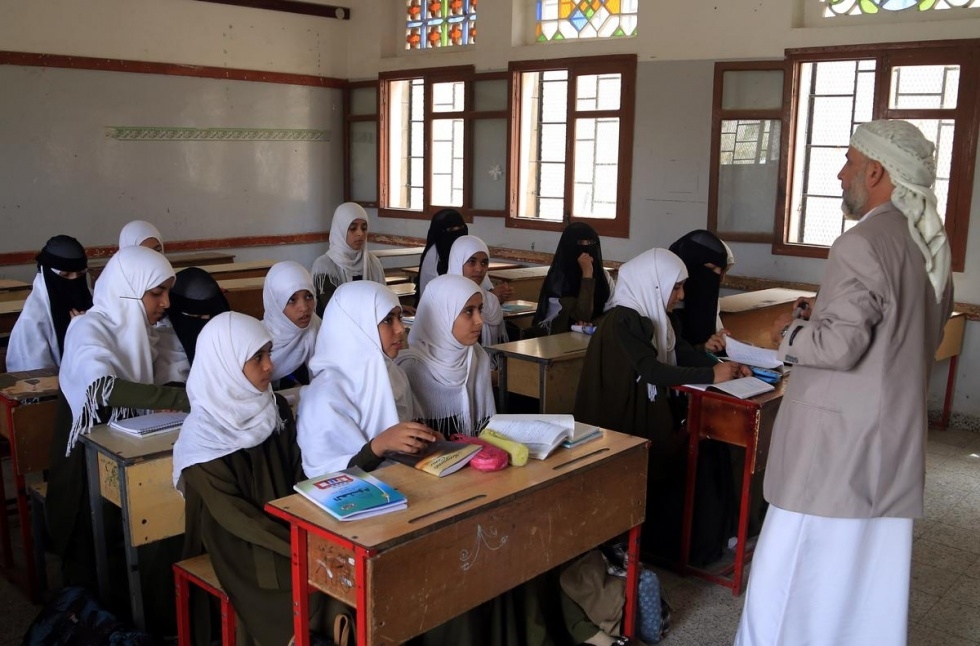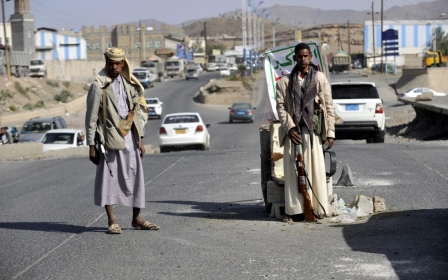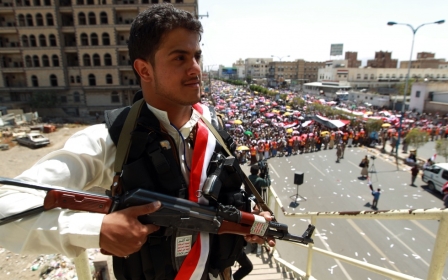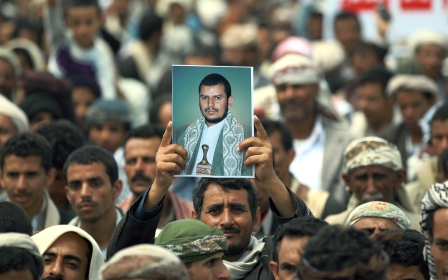Guns 'n grammar: Yemen pupils find classes full of ammo

By Jamal al-Jaberi
Back to school for young Yemenis in Sana'a Monday was a stark reminder of why many missed classes in the first place - rebels were using it as an arms dump.
Shiite rebels had swept into the north of the city from their northern mountain stronghold, pressing the authorities for reforms and a greater say in the impoverished country's affairs.
After days of brief but bloody fighting, mainly in the north of the city where the Shamlan school is located, the Houthi rebels, known as Ansarullah, occupied it after overrunning Sana'a on 21 September.
Children who turned up on Monday after the school was supposed to have reopened found the gates firmly shut and ended up having classes in the street outside.
Appropriately, when it was time for drawing, many sketched pictures of tanks and machineguns.
"We have a war at school," explained one pupil about the picture he had made.
Rebels remained tight-lipped when some parents of the hundreds of students at Shamlan school asked when they would vacate the building.
Houthis have lined up armoured vehicles in the playground and filled the classrooms with ammunition.
The rebels, who captured key state installations and military bases and now hold sway over most of Sana'a, seized large amounts of weapons during their offensive.
Headmistress Fawzia al-Ashem appeared torn between a ministerial decision to reopen the school on Monday and the insurgents' refusal to move out.
"It was decided to reopen the school without thinking what's inside it," she told AFP.
Rebels rule the roost
Schools in the area had closed temporarily because of heavy fighting between the rebels and Sunni Islamists of Al-Islah (reform) party.
And although rebels continue to rule the roost in Sana'a's streets amid an almost total absence of mainstream security forces, the education ministry went ahead and told schools to reopen on Monday - with some students, like those captured in photos below, able to resume learning.
"The Houthis are justifying their occupation of the place by saying that they have the right to stay," one parent said.
"They claim they're trying to find somewhere else to stock their weapons, but I don't believe them," he added, asking not to be identified for security reasons.
The UN Children's Fund (UNICEF) said twice during the fighting that it was concerned about schooling in the capital, urging all parties to respect the right to an education and to vacate occupied schools.
Hours after taking over the capital eight days ago, the Houthis signed an agreement to end the fighting, mediated by UN envoy Jamal Benomar.
And after initially hesitating, on Saturday the rebels signed the accord's security protocol, stipulating the withdrawal of their forces from Sana'a once a new prime minister is named.
But President Abdrabuh Mansur Hadi has so far failed to name the new premier.
Yemen's authorities have in the past accused Iran of backing the rebels, who also appear influenced by Lebanon's powerful Tehran-backed Shiite militia Hezbollah.
The rebels now roaming freely in Sana'a had battled the government for years, complaining of marginalisation.
Many lessons remain to be learned in the Arab world's poorest country, but for the children of Shamlan school in Sana'a they will just have to wait.
New MEE newsletter: Jerusalem Dispatch
Sign up to get the latest insights and analysis on Israel-Palestine, alongside Turkey Unpacked and other MEE newsletters
Middle East Eye delivers independent and unrivalled coverage and analysis of the Middle East, North Africa and beyond. To learn more about republishing this content and the associated fees, please fill out this form. More about MEE can be found here.




